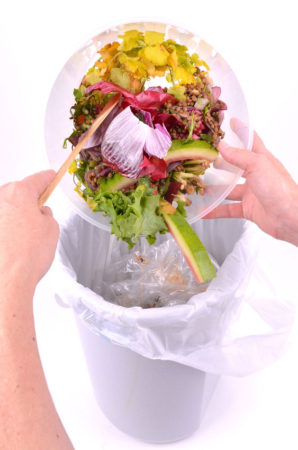Follow these golden rules to reduce food waste at home and save on your grocery budget each week.

- Always take a list when shopping. Check what you have in your cupboards and fridge before going shopping so that you don’t buy ingredients that you already have or they might go off before you have a chance to use them.
- Ignore sell-by dates as these are there just to help retail staff control their stock. You can also be flexible with best-before dates on tinned goods and cereals.
- Store food correctly. Ideally a fridge should be 1-5°C. Any warmer and food will go off more quickly than normal. Always store fruit in the fridge.
- Freeze food as soon as you buy it. Get into the habit of dividing a loaf of bread in two and putting half in the freezer. Put some of your meat or fish straight into the freezer, too, so if you forget about it, it won’t have gone off.
- Don’t be seduced by two-for-one offers on fresh food, unless you know you’ll definitely use it.
- Avoid buying ready-cooked meals. Sometimes one portion is not enough, but two is too much so it often leads to waste.
- Don’t be afraid of buying frozen foods. A mixture of fresh and frozen foods will reduce the likelihood of having excess fresh food.
- Be aware of portion sizes, and dish up accordingly, to avoid scraping leftover food into the bin.
- Make use of leftovers, by creating menus based on what items you have in stock and making less food at mealtimes are first prize when it comes to reducing food waste.
We also love these clever ideas from The Kitchen Revolution by Rosie Sykes, Polly Russell and Zoe Heron on how to maximise your meals with minimal time in the kitchen:
- Store leftovers in airtight containers.
- Fish should be eaten as near to the day of purchase as possible – or stored in the freezer until it’s needed.
- Cooked fish should be used within a couple of days, but cooked meat, particularly in a casserole, can be kept for up to five days.
- Rice often contains bacteria that aren’t killed by cooking, so if you have leftover rice, use it within 24 hours.
- Trust your own sense of smell, sight and taste – rather than a date.
- Be organised and try to label any leftovers that you put in the freezer.
- Fresh herbs, chillies and ginger can be frozen and used as a back-up.
- Freeze concentrated chicken or beef stock in ice-cube trays.
- You don’t always have to defrost in advance: dishes like lasagnes and casseroles can be cooked from frozen if they are warmed slowly.

